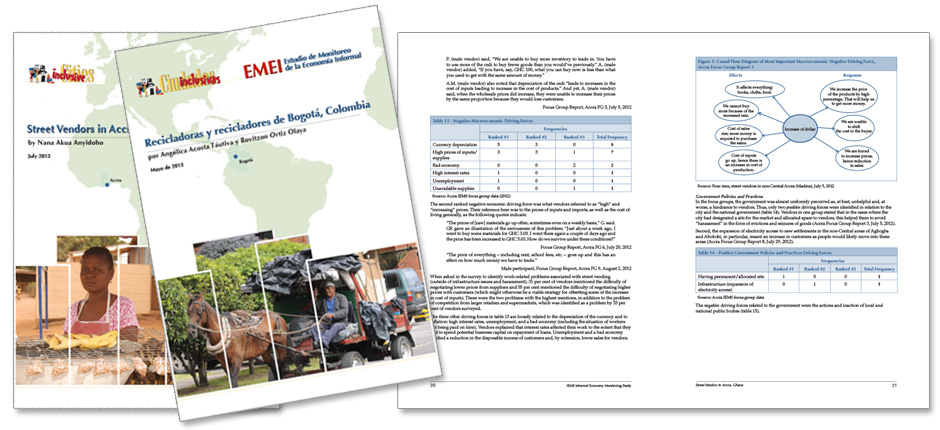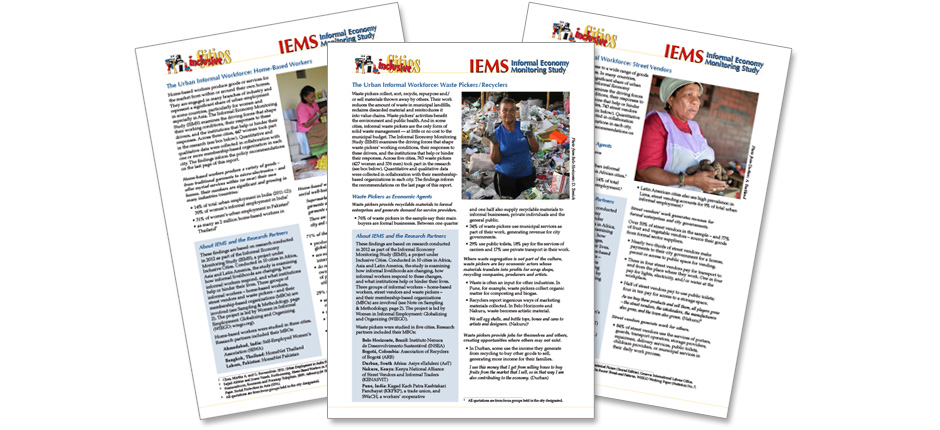Today, Inclusive Cities launched the results of the Informal Economy Monitoring Study (IEMS) at the World Urban Forum in Medellín, Colombia. IEMS is a collaboration between WIEGO, which led the study, and WIEGO’s partners in the Inclusive Cities project.
Luckham Creative has been providing design and photography services for WIEGO and the Inclusive Cities project for 6 years now. The IEMS is amongst 3 studies we have been contracted to design for WIEGO and the biggest project we have ever worked on. This study includes 86 reports of various sizes from 4 to 68 pages, and multiple languages and a web site in 3 languages. Below are just a few samples of the work that was released today and will continue to be released over the coming weeks.
The research challenges myths about the informal economy, and shows that urban informal workers play vital roles in the urban economy and help keep their households out of extreme poverty. The findings indicate that city policies and practices tend to undermine informal livelihoods.

The IEMS covers 10 Cities and 3 Occupational Groups, or Sectors, some of the Cities studied have more than one sector so there were a total of 13 City Reports done and some will be available in multiple languages. The 10 Cities studied were Accra, Ghana; Ahmedabad, India; Bangkok, Thailand; Belo Horizonte, Brazil; Bogota, Colombia; Durban, South Africa; Lahore, Pakistan; Lima, Peru; Nakuru, Kenya; and Pune, India.

For each City Report there is an Exectuive Summary available in three languages (English, Spanish and Portuguese) and a Policy Recommendations Report in English.

For each sector there is a Sector Summary and a Sector Report all available in three languages.
There is also an IEMS section to the Inclusive Cities Web site with pages for the project, the City Reports, and each of the 10 cities with links to all the documents and a slide show from the city.


